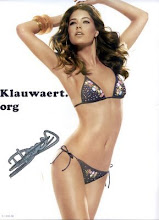The European Union is slowly trying to rewrite history to its own benefit. We have the President of the Parliament's own little vanity project, the House of European History, which is causing controversy, and we have the Euro Clio project, with its slightly sinister subset Connecting Europe.
According to Euro Clio
Education policies and regulations are commonly decided by national governments. In history this results in a focus that is very nationally oriented. Research by EUROCLIO confirms that the national dimension in history education is overrepresented, whereas the regional, European and international dimensions are underrepresented.
The disadvantage of a dominantly national approach is a distortion in historical events. The EUROCLIO Annual Meetings have always been a way to increase the European Dimension.
History educators from all over Europe have addressed a variety of topics and good practice that broadened their perspectives. Furthermore, EUROCLIO uses of trainers from a variety of European countries and beyond it all its project work. This transnational cooperation also increases the European dimension of history education and reduces the risk of a national bias in the developed material.
You get the idea.
Flicking through the "Connecting Europe Through History" booklet one can find on page 4 a picture of the storming of the Bastille. The caption reads:
Storming the Bastille: 1789 was a turning point in establishing human rights in Europe
Well I suppose you could say that. It was the precursor to all the ghastly ideological regime's who have murdered millions in the name of ideology. The "Quartering of the Vendee" was the first time that a form of genocide was practiced against a largely civilian population because they rejected a political ideology. Estimates of the dead range from 120,000 to 600,000.
Yes they are right. I suppose it did usher in a new era of human rights in Europe.
However, my favourite European history project is the Franco-German textbook, whose lead author Professor Marcel Spisser – an Alsatian Frenchman – spoke at a conference in Brussels last Tuesday about the troubles they had getting the academics to agree...
There was a big clash at the first meeting [of the editorial team of academics] a content problem. Was it about the Versailles Treaty or international relations post 1945?
No it wasn't about that at all, it was about the barbarian invasions.
"Barbarians – Are you calling the Germans Barbarians!!!".
It appears that in Germany the waves of Goths, Visigoths, Vandals and not least Huns are referred to as 'the movement of peoples' rather than 'the barbarian invasions.'


.jpg)
